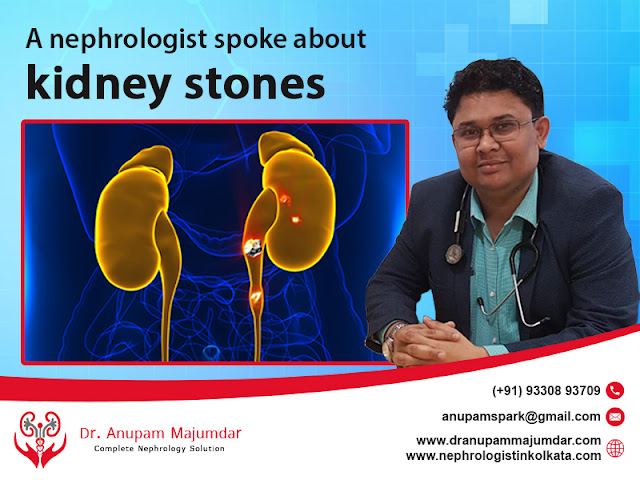Kidney stones:
Solid masses of crystals that originate in our kidneys are
called kidney stones. These are also known as renal calculi. These stones may
also develop in the ureters, bladder, or urethra.
Risk factors:
People who pass less than 1 liter of urine per day are mostly at
risk of having kidney stones. Kidney stones occur mainly in people whose ages
are between 20 and 50. A kidney specialist in Agartala says
that the number of women with kidney stones is quite less than the number of
affected men. If anyone in your blood relation had kidney stones in the past,
you should take all the precautions to decrease the risk of having the same.
Other risk factors are:
- Dehydration
- Hyperparathyroid
condition
- Gastric
bypass surgery
- If you have
a diet inclusive of high levels of glucose, salt, and protein
- Obesity
- Inflammatory
bowel disease- those which increase the calcium absorption in your body
- Medicins
like calcium-based antacids, triamterene diuretics, or antiseizure drugs
Symptoms:
Kidney stones cause sharp and severe pain. This pain may not
occur towards the beginning. When the stone starts to move down to your
ureters, the pain intensifies. This pain is commonly known as renal colic. You
may also suffer from intense pain on the side of your abdomen or back. The pain
usually comes and goes. Men may also feel severe pain in the groin area. This
pain makes people restless.
Other symptoms may include:
- Fever
- Chills
- Vomiting
- Nausea
- Blood in the
urine (red, brown, or pink urine)
- Frequent
urge to pee
If you observe any of these symptoms that are bothering you,
kindly do not ignore them and make an appointment with the bestnephrologist in Agartala.
Subscribe by Email
Follow Updates Articles from This Blog via Email


No Comments